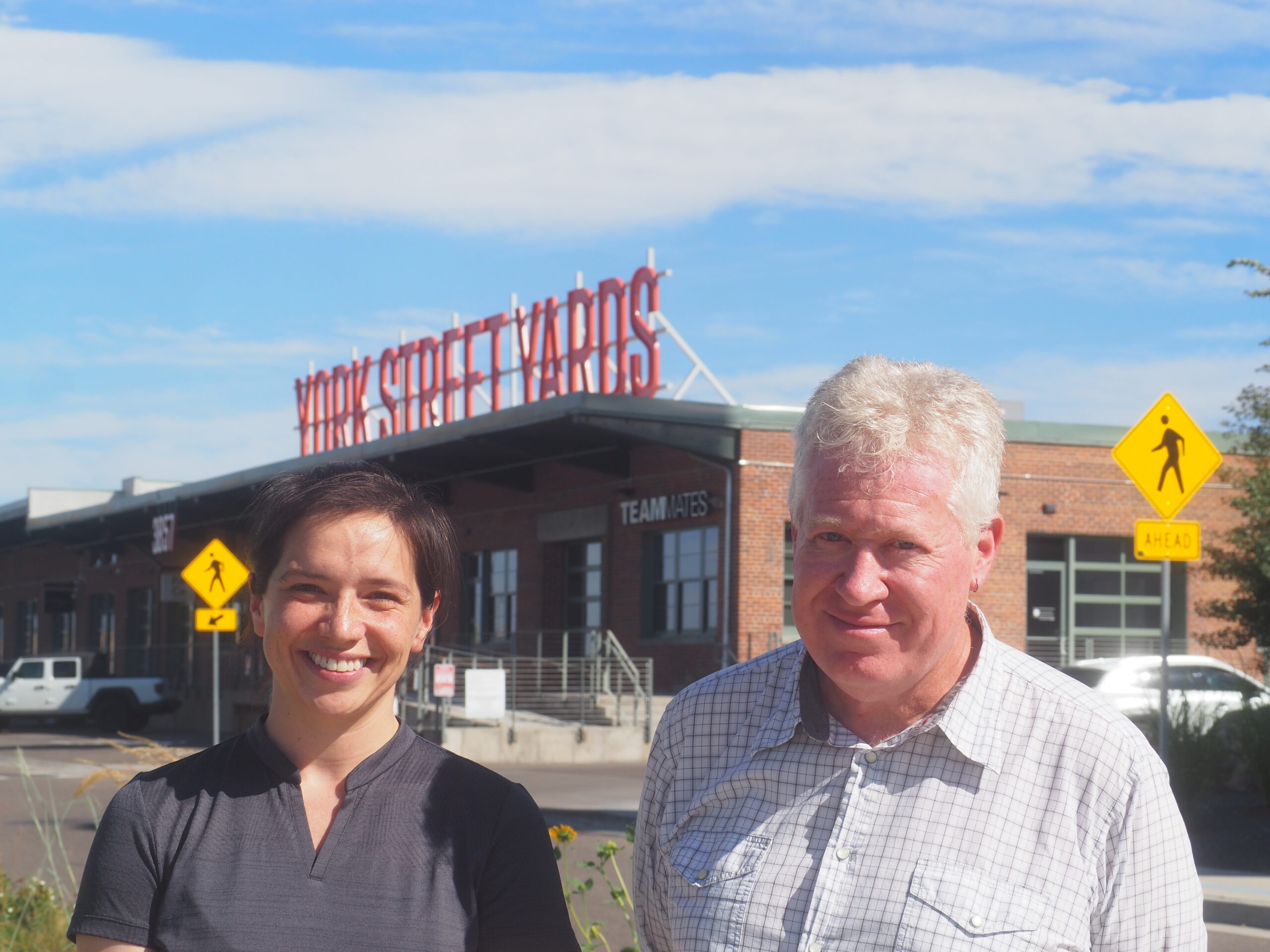'It shows me they’re serious’: Developers talk Johnston’s permitting changes - BusinessDen
Denver's Permitting Overhaul
Denver Mayor Mike Johnston's initiative to create a new permitting office with a 180-day "shot clock" for reviews has sparked mixed reactions among developers. While some are optimistic, others express concerns about its long-term effectiveness, especially as development activity increases.
Developer Perspectives
Developers like Joe Vostrejs, Rhys Duggan, and Iván Anaya share their experiences with Denver's permitting process. They highlight past challenges, including lengthy delays, navigating multiple city departments, and conflicting requirements. The new "champions" system, providing a single point of contact, is seen as a positive step.
- Vostrejs emphasizes the difficulties of adaptive reuse projects.
- Duggan praises the AHRT's efficiency in expediting affordable housing projects.
- Anaya highlights the challenges of receiving conflicting comments from different city departments.
However, concerns remain regarding the sustainability of the shorter timelines when development activity increases. The $10,000 refund for delays is seen as a sign of commitment, but some, like Fred Glick, question its significance considering the high holding costs for large projects.
Concerns and Criticisms
Fred Glick notes that the city's permitting process has become increasingly complex over time, adding more and more requirements. He believes the city's risk-averse culture treats minor issues with the same level of importance as major safety concerns, leading to unnecessary delays.

Denver Mayor Mike Johnston announced the creation of the Denver Permitting Office on Monday. (Matt Geiger/BusinessDen)
Joe Vostrejs is “ecstatic” about the possibility of Denver’s permitting process getting better for the first time in his 40-year real estate career.
“It has progressively gotten more challenging in just a steady, relentless, upward arc of difficulty,” said the co-founder of Denver-based City Street Investors.
In a series of interviews with BusinessDen on Tuesday, a day after Denver Mayor Mike Johnston’s announcement of a new permitting office that will review applications on a 180-day “shot clock,” Vostrejs and others in the real estate sector generally voiced optimism, with a hint of cautiousness, about the planned changes. But one developer said the city’s reforms need to be broader.
Vostrejs said he’s had to abandon projects because of Denver’s labyrinthine permitting system.

Joe Vostrejs
“I’ve had relatively simple projects take years to get through the process,” he said.
That could be because Vostrejs’ projects are a little more challenging than most. His firm specializes in redeveloping existing buildings, like the long-vacant Evans School in the Golden Triangle.
“Things tend to work better in the city when they’re cookie-cutter. If you’re doing a ground-up project on a greenfield where it’s easy to design everything to the letter of the code, the process tends to work better. Where it tends to fall apart is any kind of adaptive reuse,” he said.
Among those who attended Johnston’s announcement near Union Station was Rhys Duggan, CEO of Denver-based Revesco Properties.
His firm is most known for being behind The River Mile, the neighborhood that will eventually replace Elitch Gardens. But in recent years, Revesco has also developed a Sonder hotel in LoHi, and multiple apartment projects in conjunction with Denver-based Alpine Investments.
One apartment project, yet to break ground at 20th and Chestnut streets, was originally going to be market-rate. But plans changed, and it will now feature income-restricted units. The shift put the project under the purview of the city’s new Affordable Housing Review Team, or AHRT, formed in 2023 to expedite those types of projects.
While Revesco’s project only needed minor changes at that point, “generally speaking, it’s been quick,” development manager Nick Allen said of AHRT’s work. If the new initiative expands that turnaround to all projects, Duggan said, it would be a significant win.
Duggan also likes what’s being called the “champions” who will serve as a single point person on the city end. In the past, he said, Revesco has found itself negotiating between multiple city departments on some details, which he doesn’t believe should be an applicant’s job.
“If you don’t have a champion, it’s like going to the hospital and trying to navigate the health care system without an advocate,” he said.
Iván Anaya, who runs the Denver office for Atlanta-based developer Columbia Ventures, parroted Duggan’s sentiment.
Anaya is building an income-restricted apartment project in Denver’s Elyria-Swansea neighborhood. He said he encountered difficulty in the plans’ initial stages, receiving competing and contradictory comments from different city departments, which delayed the project a few weeks. But a great “quarterback” from AHRT helped the project progress.
“I think it’s greatly appreciated that our mayor is pulling all the city’s employees together to solve a problem that, at the end of the day, is a contributing factor to our affordability crisis,” he said.
But Duggan noted that development activity is “definitely in a lull” currently. Economic factors have contributed to fewer groundbreakings. Additionally, many developers raced to submit concept plans in 2022 ahead of new regulations taking effect.

Rhys Duggan
“Will we be able to maintain those reductions in permit timelines once the permit activity picks back up?” Duggan asked.
Duggan said he likes the city’s pledge to refund up to $10,000 in permit fees if the 180-day commitment isn’t reached.
“I thought that was creative. It shows me they’re serious,” he said.
Duggan supported Kelly Brough in the 2023 mayoral election but has become a fan of Johnston, whom he described as likeable and “good at rallying people.”
“We’ve heard from so many retailers that they’re reluctant to open more locations in Denver because the process takes too long,” Duggan said.
Peter Wall, a lobbyist with Wall Kane Consulting, said he represents clients with over $2 billion in new Denver development planned, including the long-discussed transformation of the Denver Rock Drill site in RiNo. He said permitting was “top of mind for every mayoral candidate” in 2023.
“I think it’s an extremely important step in the right direction, and it comes in the nick of time,” Wall said.
Fred Glick, of Denver-based Columbia Group, told BusinessDen he felt he needed more information than Monday’s announcement included. He also questioned the value of the $10,000 refund pledge.

Rebecca Arnold, left, an executive with ScanlanKemperBard, the firm that owns York Street Yards, stands with Fred Glick, who is seeking to develop affordable housing next door. (BusinessDen file)
“Ten thousand dollars is something, [but] the holding costs for a project – for a large commercial project – just in terms of the property taxes could be well over $10,000 a month,” he said.
Speaking broadly, Glick said the issue is that Denver’s permitting process has long been additive. More and more is required to complete development projects, and there’s not enough perspective on which details are most important.
He describes it as “the ‘Creature From the Black Lagoon’ that grew on exposure to radiation.” A friend of his has a more festive perspective, telling him that Denver permitting is a “Christmas tree that people want to keep adding ornaments to.”
Glick, who sits on Denver’s Planning Board and is a partner with Vostrejs in the Evans School project, said site development plans that used to be 10 pages are now 30. He’s even having to amend old site plans for completed projects since the city sees them as “their official record” of buildings and properties — work, he said, that costs him thousands.
“The culture of our municipality is very risk averse,” Glick said. “Is the risk [that] people are going to die? Or is the risk that we missed a parking space, or a building is one parking space short? Right now, those two issues are almost treated equally in terms of the permitting process — either one would prevent you from getting a permit.”
BusinessDen staffer Thomas Gounley contributed reporting.
Was this article displayed correctly? Not happy with what you see?
If you often open multiple tabs and struggle to keep track of them, Tabs Reminder is the solution you need. Tabs Reminder lets you set reminders for tabs so you can close them and get notified about them later. Never lose track of important tabs again with Tabs Reminder!
Try our Chrome extension today!
Share this article with your
friends and colleagues.
Earn points from views and
referrals who sign up.
Learn more
Save articles to reading lists
and access them on any device